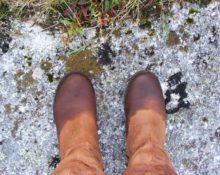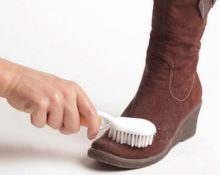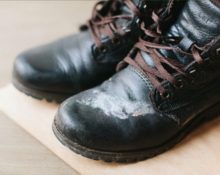In winter, in order to save the population of cities from falls and injuries on slippery ice, roads are sprinkled with chemical reagents. These substances are very aggressive. They eat away not only the snow crust on the road, but also shoes. With a small impact, boots can simply become covered with white, unsightly stains. And with constant wear, the material does not withstand aggressive influences and becomes unusable. Is it possible to do something to protect your beloved couple from the harmful effects of reagents?
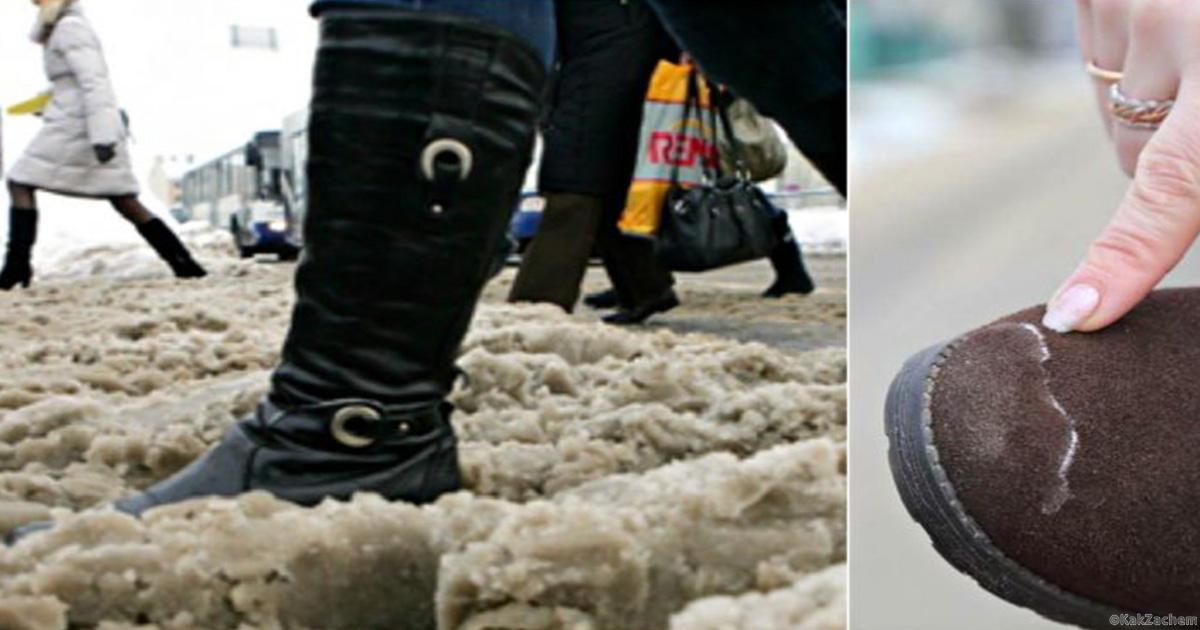
Getting your shoes ready to go out
Today, there are various innovative compounds that help protect boots from the negative effects of reagents. You can find them in all shoe stores, and then process the boots yourself.
Water repellents
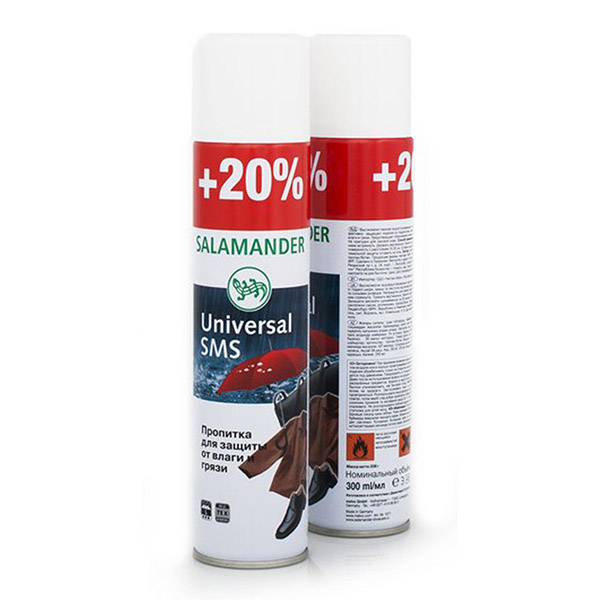
Women used to coat their boots with lard or beeswax. But such folk remedies spoiled the aesthetic appearance of the boots.
In stores you can find special sprays and wax, capable of protecting boots made of different materials from reagents. They usually have a base of beeswax or mink fat.Such remedies are a good alternative to folk remedies.
Many people mistakenly believe that applying a water-repellent spray will help protect shoes from aggressive additives. This is not entirely true.
Important! For the spray to bring results, you need to cover your boots with it at least three times. In this case, each time you should wait until the previous layer has completely dried.
Delicate materials
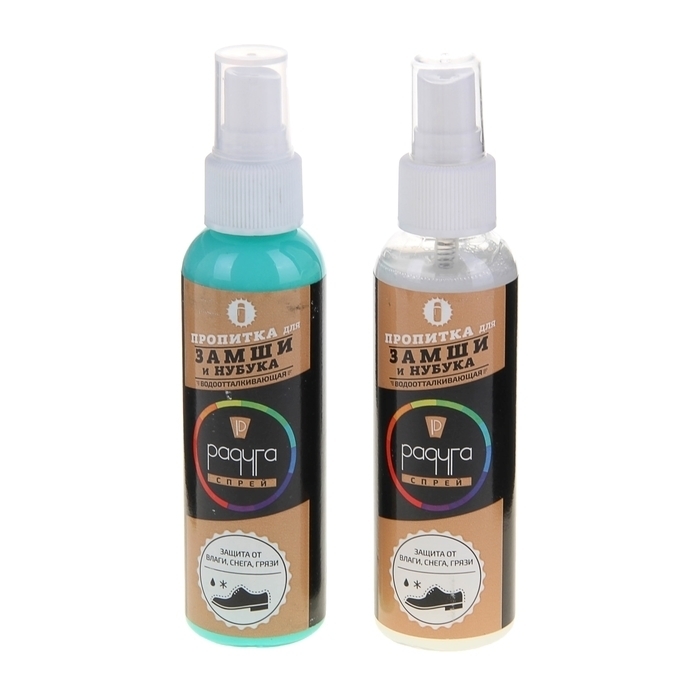
Shoes made of nubuck and suede are a separate topic. Such products need to be protected; it is better not to wear them in slushy weather. However, in megacities this is virtually impossible. Therefore, you should arm yourself special water-repellent sprays containing oil. They will help protect the material from impregnation with reagents.
We save shoes from exposure to reagents
Even an ordinary salt mixture, which is still sprinkled on footpaths today, can significantly damage shoes. What can we say about chemicals used on roadways? They have the most negative impact on boots and render them unusable in the shortest possible time.
How to remove salt from different materials
In order not to spoil the appearance and quality of the product, you should consider what material they are made of.
Leather
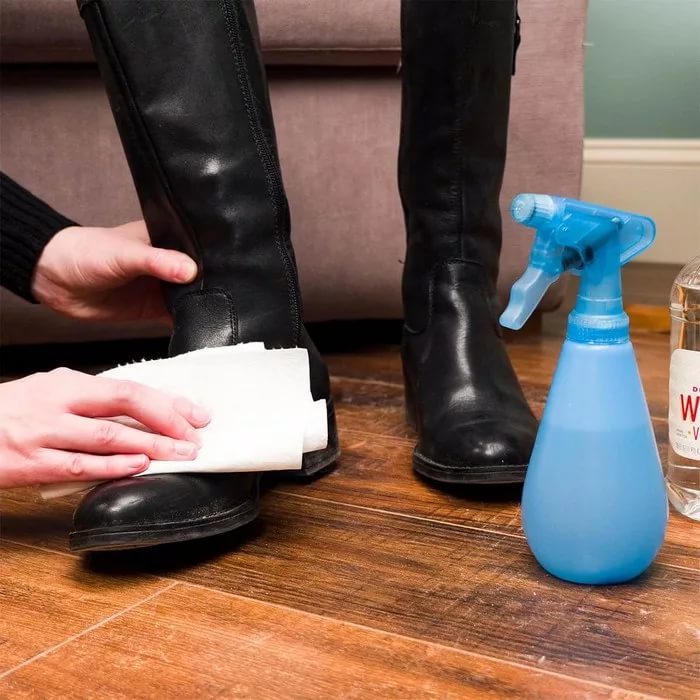
To remove salt deposits from your favorite pair of leather boots, you need to rinse them under running warm water. Then wrap each boot in paper towels and leave them that way overnight. During this time, the paper will absorb all the released salt.
Advice. You can treat salt stains with castor oil and nourish the skin with a special shoe cream.
Suede
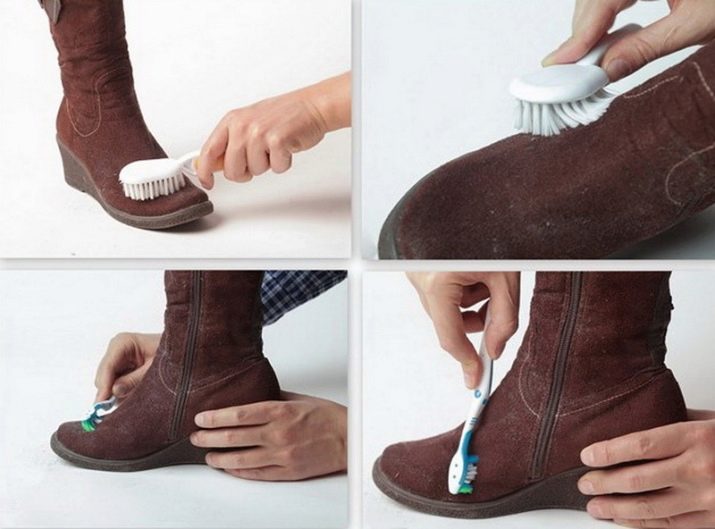
To return your shoes to an attractive look, you must first keep them in a water bath. Then straighten the villi with a dry brush, as if combing. Salt stains can be carefully treated with soap foam or wiped with dry semolina.
Nubuck
Such a pair can only be cleaned with a mild soap solution. The main thing is to let the boots dry completely after this, and then “comb” them with a dry suede shoe brush.
We use special means
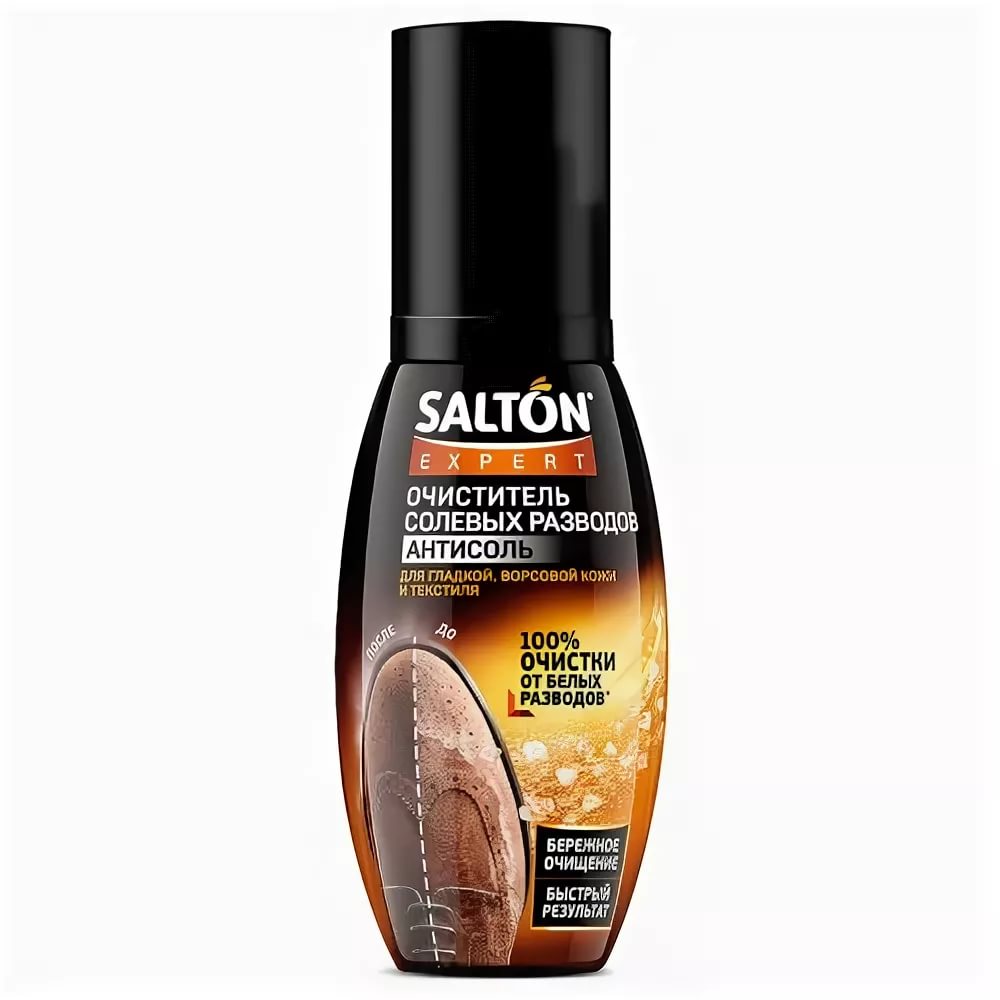
Shoe stores today offer a variety of remedies for sand-salt mixtures and liquid reagents. Their action does not have a very long-lasting effect. But with regular treatment, you can extend the life of your beloved couple.
Especially if you use water-repellent compounds and protective ones at the same time. This will help completely protect your boots from the negative effects of chemicals.
Is it possible to buy shoes that are resistant to reagents?

Unfortunately, there is no material for winter shoes that is not sensitive to the effects of chemicals that are sprayed on roads. Only rubber boots can be resistant. But they are completely unsuitable for the winter period, as they do not protect against the cold.
The best option for winter are high-quality products made from thick leather.. Over time they will wear out and stains will appear. But with regular care, you can maintain their condition and good appearance for a long time.
There is an opinion that in winter you should wear shoes with thick soles. There is a logic to this. In this case, the likelihood of less contact between the top of the boots and the salt increases. You just need to remember to regularly wash it off the soles.
Perhaps you have your own proven methods to help shoes withstand interaction with reagents?


 0
0